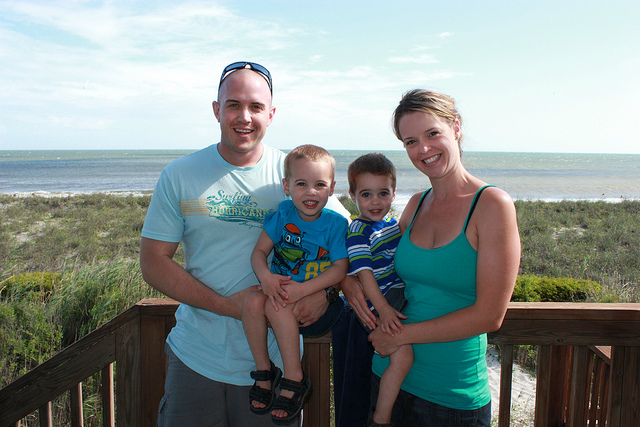Leaving your car’s papers behind, forgetting your cell phone charger or notifying the credit card company that you’ll be leaving the country can all become small tragedies when the enthusiasm for your holiday vacations is just beginning.
In order to have a pleasant and safe trip, stay and return, you should keep in mind these tips before you leave.
Regardless of the destination or the number of days, there are several points to consider. You must leave your home under certain conditions to find just like you left it upon your return.
The car is a chapter in itself, going from mechanical issues all the way through having your papers in order. Electronic devices -cell phones, notebooks, tablets and DVD players, and their respective chargers and cables- are essential to the trip, especially if you have kids.
- Your car’s papers: Driver’s license, ID, permits to drive abroad if needed, up-to-date technical inspections and valid insurance proof.
- Tires and brakes: The five wheels must have the appropriate amount of air according to the manufacturer’s recommendations. It is important to verify that the tire tread is not too worn. If a metallic friction noise is heard when braking, you may need to check your brake fluid or pads.
- Fluid levels: Check the oil levels and the mileage corresponding to the next change of oil and filter. If it is close, it is best to change it before going on holiday, especially if you have a long trip. Also check the water levels in the radiator, the power steering fluid and brake, antifreeze and windshield wipers.
- Lights: You should check that all positions are working properly -high, low, left and right blinkers- beacons and fog.
- Air conditioner: In order not to suffer due to the heat, it’s a good idea to check its gas levels. Another option is to change the filters, which have a slightly high cost and allow better performance.
- Security features of the car: You must have a fire extinguisher that is located within reach of the driver, inside the cabin, with secure support to prevent sliding. It is also suggested to carry a hydraulic jack, an inflated spare tire, a spanner and a first aid kit.
- Other practical products. The trip can be more pleasant if you carry a roll of kitchen paper, some cold drinks for hydration, mints or chewing gum, or even some cookies.
- Medical coverage: It is important to check that the service is active and it’s a good idea to have the addresses of attention centers near the place where you’ll be staying.

Image courtesy of machinegunchristy at Flickr.com
- Home: It is advisable to turn off the power and close the gas and water valves, as long as this does not affect other services such as alarms. Empty the refrigerator to avoid encountering expired food upon returning and pay ahead for your services not to be cut. It is also best to refrain from posting messages on social networks that allow others to know that your house will be empty.
- Cell phone use while driving: After half a minute of talking on the phone, even if you’re using a headset, the driver does not perceive about 30% of the signals, their average speed falls by 10%, their heart rate accelerates and reaction times are longer. The danger can be comparable to that of drinking alcohol.
- Meals during the trip: The driver should eat light and opt for water or soda and, of course, avoid drinking alcohol. Drinking hot beverages or smoking while driving is risky, so it is recommended to do it at rest stops.
- Break: Before hitting the road it is best to rest well and drive during the day. If there is no chance to alternate your driving duties with someone else, it is important to rest 10 minutes every 100 miles, getting out of the vehicle and do stretching and relaxation exercises.
- Distance and speed: It’s important to keep an eye on these to prevent any accidents caused by another driver’s errors or an unexpected situation on the road or your vehicle. Speeding is one of the leading causes of death on the roads and streets.
- Seatbelts: All occupants must wear a seatbelt, even in the back seats. Babies and toddlers should ride in special chairs since, due to their size and bone structure, car seat belts are not enough to protect them properly.
- When traveling by plane, wear comfortable, loose clothing. If you check-in online, it is best to choose the seats in the emergency row, which are more spacious and comfortable. If you leave the country, it is good to hire a service of coverage for travelers.
- Electronic devices: Don’t forget to take chargers and cables with you, especially those that are hard to borrow at your destination. Sand and sun are harmful to these devices, so you should be very careful. If you drop your phone into the water, switch it off as soon as possible, get the battery out, allow it to dry for several days and, if you’re lucky, it will work again.

